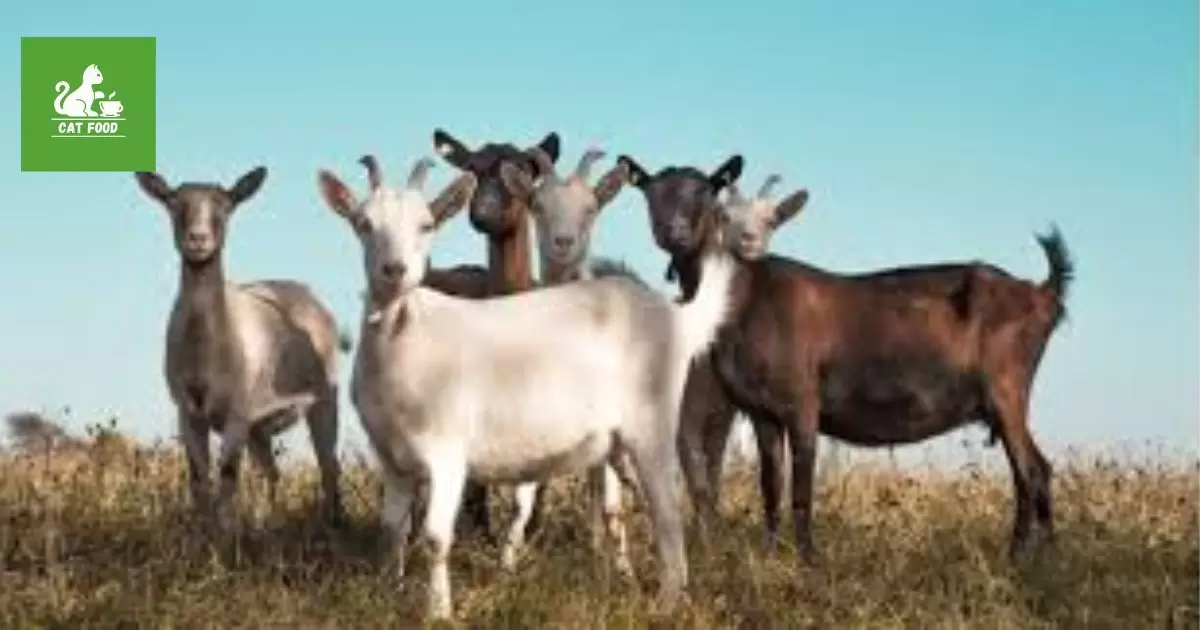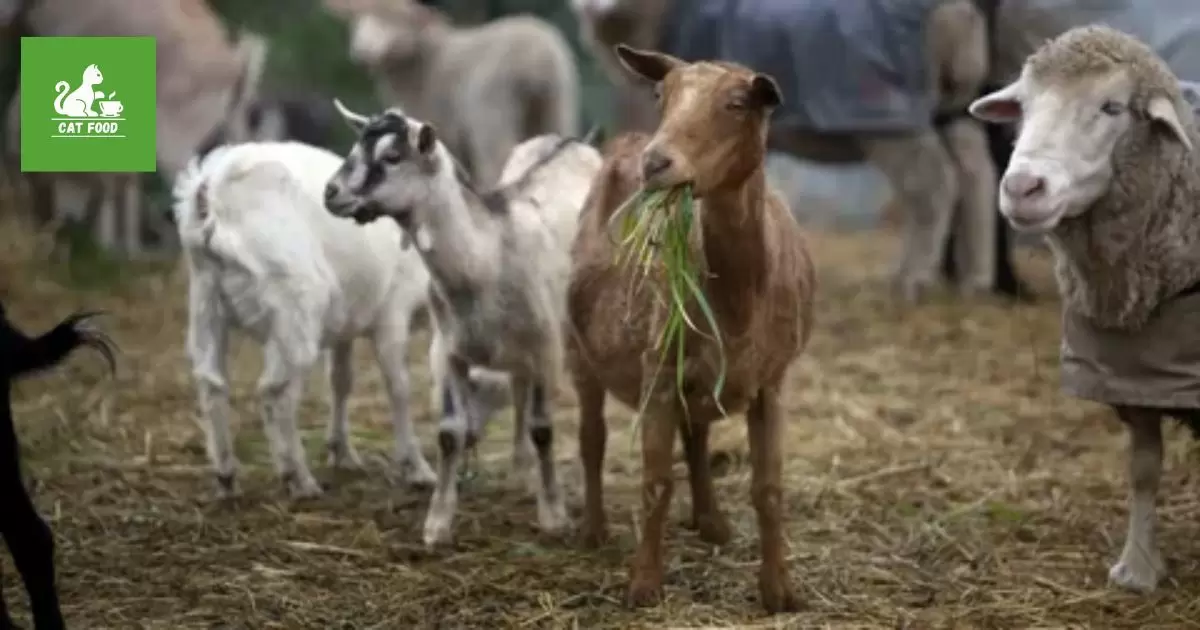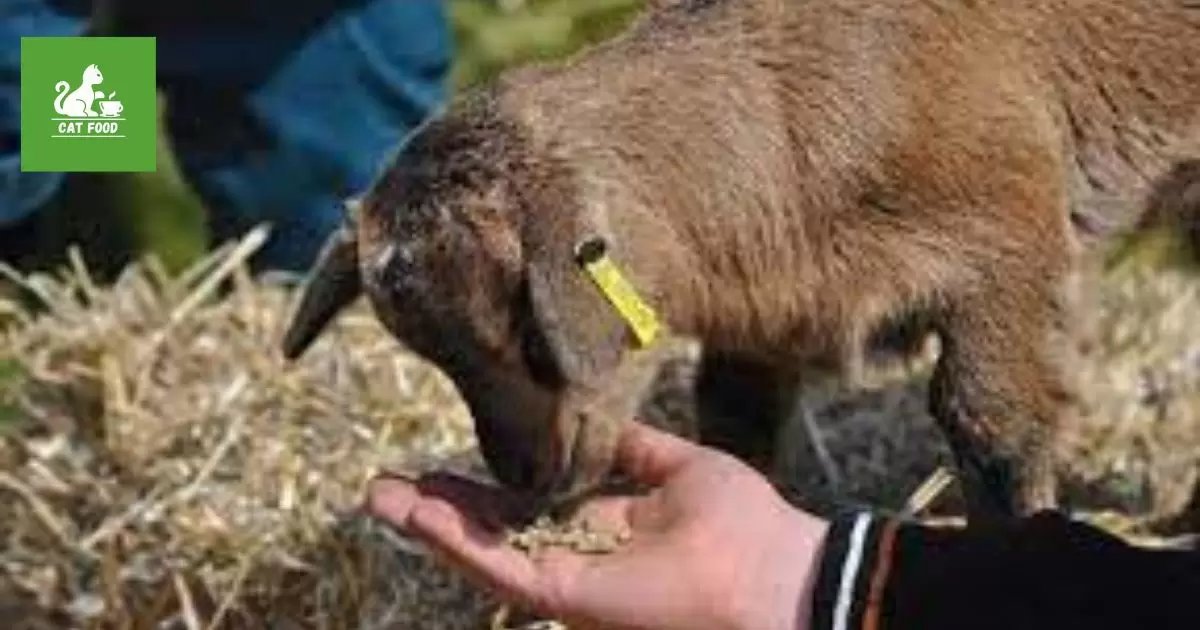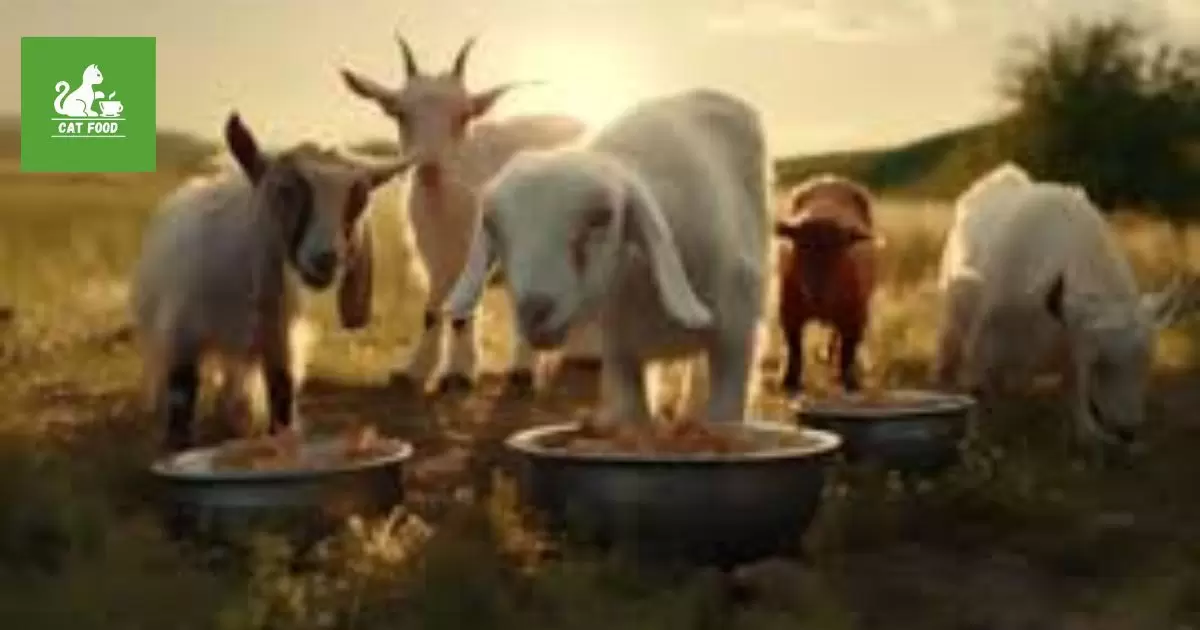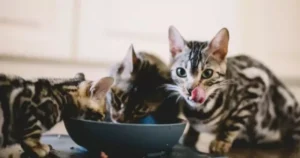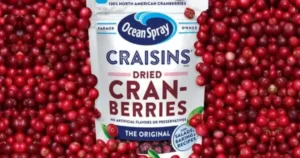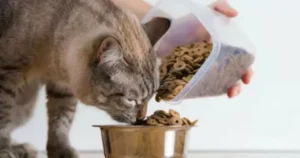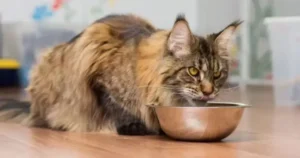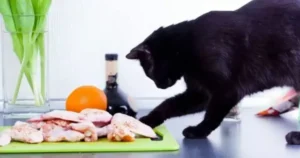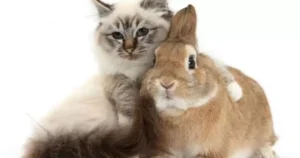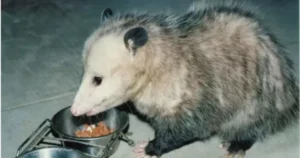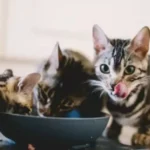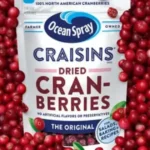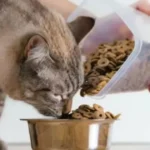Goats are herbivorous mammals that typically feed on grasses, shrubs, and other plant materials. Their digestive systems are adapted to efficiently process high-fiber vegetation. Goats possess strong, agile lips and tongues that help them grab and chew plant foods. Overall, goats are not well suited to eat meat-based cat foods.
Can goats eat cat food? This is a question sometimes asked by curious pet owners or backyard goat raisers. On the surface, it may seem like cats and goats could eat similar foods. However, there are important differences between feline and caprine nutritional needs. Feeding cat food to goats carries potential digestive risks.
Goats require diets specifically formulated to provide proper levels of nutrients like proteins, carbs, vitamins, and minerals. Cat foods contain animal-based proteins and fats goats cannot properly digest. The high-protein, low-fiber content of cat food does not align with the nutritional makeup goats need. While goats may nibble on cat food, it should not make up a significant portion of their diet.
Key Takeaways
- Goats are herbivores while cats are carnivores, so their nutritional needs differ. Cat food is higher in protein and fat than what goats require.
- Cat food does not provide the proper vitamins, minerals, and fiber balance that goats need. Feeding it as a main food could lead to nutritional deficiencies.
- Occasionally feeding small amounts of cat food as a treat is generally safe, but it should not become a regular part of a goat’s diet.
- Overfeeding cat food can cause obesity, urinary crystals, acidosis, and other health problems in goats. Guidelines should be followed to limit threats.
- Signs a goat is getting too much cat food include loose stools, lack of appetite, aggression at feeding time, and rapid weight gain.
- Healthy alternative treats for goats include fresh fruits and veggies, grains, legumes, garden trimmings, and woody browse.
- While goats can eat a little cat food, cats should not eat goat feed as it does not meet their nutritional needs.
Nutritional Differences Between Goats and Cats
To understand why cat food is not suitable as a primary feed for goats, it helps to look at some of the nutritional differences between cats and goats. Cats are obligate carnivores, meaning they must eat meat and primarily derive nutrients from animal flesh. Goats, on the other hand, are herbivores. They have a specialized digestive system for extracting nutrients from fibrous plant materials.
Here are some key dietary differences:
- Protein: Cats require very high levels of protein from animal sources. Goats need moderate protein levels that can come from both plant and animal sources.
- Fiber: Cats have no dietary fiber requirement. Goats need high fiber from sources like grass and hay.
- Vitamins and minerals: Cat food is fortified with vitamins and minerals suited for carnivores. Goats require different balances of vitamins like A and C as well as minerals like calcium and copper.
- Fat: Cat food contains very high-fat levels to meet cats’ energy needs. Excess fat can cause obesity and health issues in goats.
While goats can eat cat food, it does not contain the proper balance of nutrients in the right forms for goats. Feeding cat food long-term could cause malnutrition and medical problems.
Dangers of Feeding Cat Food to Goats
Cat food can be a tasty, high-protein treat for goats. However, there are some risks to be aware of when offering cat food to goats:
- Nutritional imbalances: As outlined above, the vitamin, mineral, protein, and fat content of cat food is not right for goats’ needs. Imbalances or toxicity could occur with excess feeding.
- Obesity: The high fat and calorie content coupled with tasty flavors make cat food an obesity risk for goats. Obese goats are prone to health issues like arthritis and pregnancy complications.
- Urinary crystals: Cat food can contain excessive magnesium and phosphorus levels, making male goats prone to developing urinary crystals and blockages.
- Ruminal acidosis: The carbohydrates in dry cat food can disrupt rumen health in goats leading to acidosis, gas, and bloat.
- Food preferences: If goats fill up on cat food, they may refuse their normal hay and grain diet in favor of the tastier cat food.
While the occasional cat food treat is fine, it is wise to limit access and avoid making it a primary food source for goats. Following proper feeding guidelines can help reduce the risks.
Guidelines for Feeding Cat Food to Goats
If you want to share a nibble of cat food with your goats as a treat, here are some tips to follow:
- Feed only small amounts occasionally, limiting treats to about 2% of total daily feed.
- Provide loose minerals formulated for goats to correct for any imbalances.
- Split up treats throughout the day rather than one large meal to minimize digestive issues.
- Pick cat foods without added sugars or artificial flavors, prioritizing meat-based varieties.
- Reduce grains and rich foods like cat treats if goats become overweight.
- Do not feed to pregnant does, bucks prone to urinary issues, or kids under one-year-old.
- Ensure goats have plenty of roughage from grass or hay before offering high-protein cat food.
Following these precautions can allow for cat food to be an occasional “junk food” treat that goats enjoy but without health consequences. Just don’t let it become a dietary staple.
Signs Your Goat Is Eating Too Much Cat Food
While the occasional cat food treat is fine for most goats, overdoing it can cause health issues. Here are some signs your goat may be getting too much cat food in their diet:
- Loose stools, diarrhea, or digestive upset
- Lack of appetite for regular food
- Increased aggression around feeding time
- Appearance of urinary crystals in bucks
- Rapid weight gain or obvious obesity
- Lethargy or other signs of nutritional deficiencies
If your goat exhibits these signs, review their diet and remove cat food for a few weeks. Then reintroduce it in smaller amounts if desired. Consulting a veterinarian may also be wise to check for health issues caused by nutritional imbalances.
Healthy Goat Treat Alternatives
For goats that become obsessed with cat food treats, there are other healthier options you can offer instead:
- Fresh fruits like apples, pears, berries, and melon
- Unsweetened cereal grains like oats, barley, and rice
- Legume treats like roasted chickpeas or peanuts in the shell
- Fresh garden trimmings like carrot tops, lettuce, and fresh weeds
- Dry treats like plain rice cakes, saltine crackers, or goat treats
- Nutritious browse cuttings from woodier shrubs, like rose bushes or willow
Rotating a variety of fresh, natural treats can satisfy goats’ cravings while aligning better with their nutritional requirements.
Can Cats Eat Goat Feed?
On the flip side, cats are also known for trying to eat livestock feed. Just as cat food is not ideal nutrition for goats, goats’ typical feed of hay, grains, vegetables, and browse is not appropriate for cats either. Cats Eat Chinese Food as an occasional snack or treat, but like any people’s food, it should only ever make up a small percentage of your cat’s total caloric intake. Things like steamed white rice and little bits of plain chicken can sometimes be an acceptable human food for cats, but in general cat food formulated specifically to meet feline nutritional requirements is always going to be the best choice.
Here are some reasons cats should not regularly eat goat feed:
- High fiber, low protein: Cats need high protein, not bulky fiber.
- Low taurine: Cats require taurine that is added to commercial cat foods but absent in goat feed.
- Vitamin and mineral imbalance: For example, excess copper from goat feed can damage cats’ livers.
- Thiamine deficiency: Goats produce enzymes that destroy vitamin B1 or thiamine from their feed that cats need.
- Fat deficiency: Goat grains and hay are very low in fat compared to cats’ energy needs.
- Choking hazards: Some goat feeds or hay have sticks or hulls that could choke cats.
While trying goat feed likely will not harm a cat in small amounts, it does not provide complete and balanced nutrition for long-term feeding. Cats should stick to a commercial cat food diet and leave the goat feed to the goats!
FAQ’s:
Is cat food bad for goats?
Yes, cat food lacks proper nutrients and can cause health issues if fed regularly.
Can goats have cat food as a snack?
Goats can have small amounts of cat food as an occasional treat.
Do goats need supplements if fed cat food?
Goats may need extra loose minerals to balance nutrition from cat food.
What are signs a goat is eating too much cat food?
Weight gain, lack of appetite, and loose stools signal too much cat food.
What are some healthy treats for goats besides cat food?
Fruits, vegetables, grains, legumes, and woody plants make good goat treats.
Conclusion:
Goats and cats have very different nutritional needs. While goats have plant-based diets, cats eat meat. Goats cannot properly digest the high-protein, high-fat food that cats require. Their systems are made to break down vegetables, grains, hay, and leaves. Eating cat food would be unhealthy for goats, likely causing digestive upset.
The answer to the question. Can Goats Eat Cat Food? is no. Cat food should only be fed to obligate carnivores like cats. Goats are herbivores, meaning they must only eat plant-based foods. Feeding goats cat food could make them sick and should be avoided. Goats and cats each need species-appropriate diets to stay healthy.
